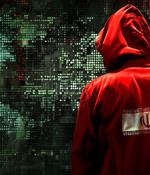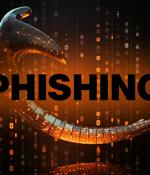Security News

Note to Xi: Marco and Ted Cruz aren't the same person China's Spamouflage disinformation crew has been targeting US Senator Marco Rubio (R-Florida) with its fake news campaigns over the past...

For years now, AI has undermined the public’s ability to trust what it sees, hears, and reads. The Republican National Committee released a provocative ad offering an “AI-generated look into the...

U.S. federal prosecutors on Friday unsealed criminal charges against three Iranian nationals who are allegedly employed with the Islamic Revolutionary Guard Corps (IRGC) for their targeting of...

The U.S. Department of Justice unsealed an indictment charging three Iranian hackers with a "hack-and-leak" campaign that aimed to influence the 2024 U.S. presidential election. [...]

The frequency of phishing attacks is rising as attackers increasingly utilize AI to execute more scams than ever before. In this Help Net Security video, Abhilash Garimella, Head Of Research at...

Russia has seemingly decided who it wants Putin the Oval Office The Biden administration on Wednesday seized 32 websites and charged two employees of a state-owned media outlet connected to a $10...

The FBI seized 32 web domains used by the Doppelgänger Russian-linked influence operation network in a disinformation campaign targeting the American public ahead of this year's presidential...

No, Abbey is not really a "pure patriotic girl" Spamouflage, the Beijing-linked trolls known for spreading fake news about American politics, is back with new accounts on X and TikTok that claim...

OpenAI has banned ChatGPT accounts linked to an Iranian crew suspected of spreading fake news on social media sites about the upcoming US presidential campaign. OpenAI attributed the phony posts to Storm-2035, a Tehran-backed group that Microsoft also sounded the alarm about last week as it and other Iranian groups have continued to meddle in elections - some veering toward attempts at inciting violence.

OpenAI on Friday said it banned a set of accounts linked to what it said was an Iranian covert influence operation that leveraged ChatGPT to generate content that, among other things, focused on...